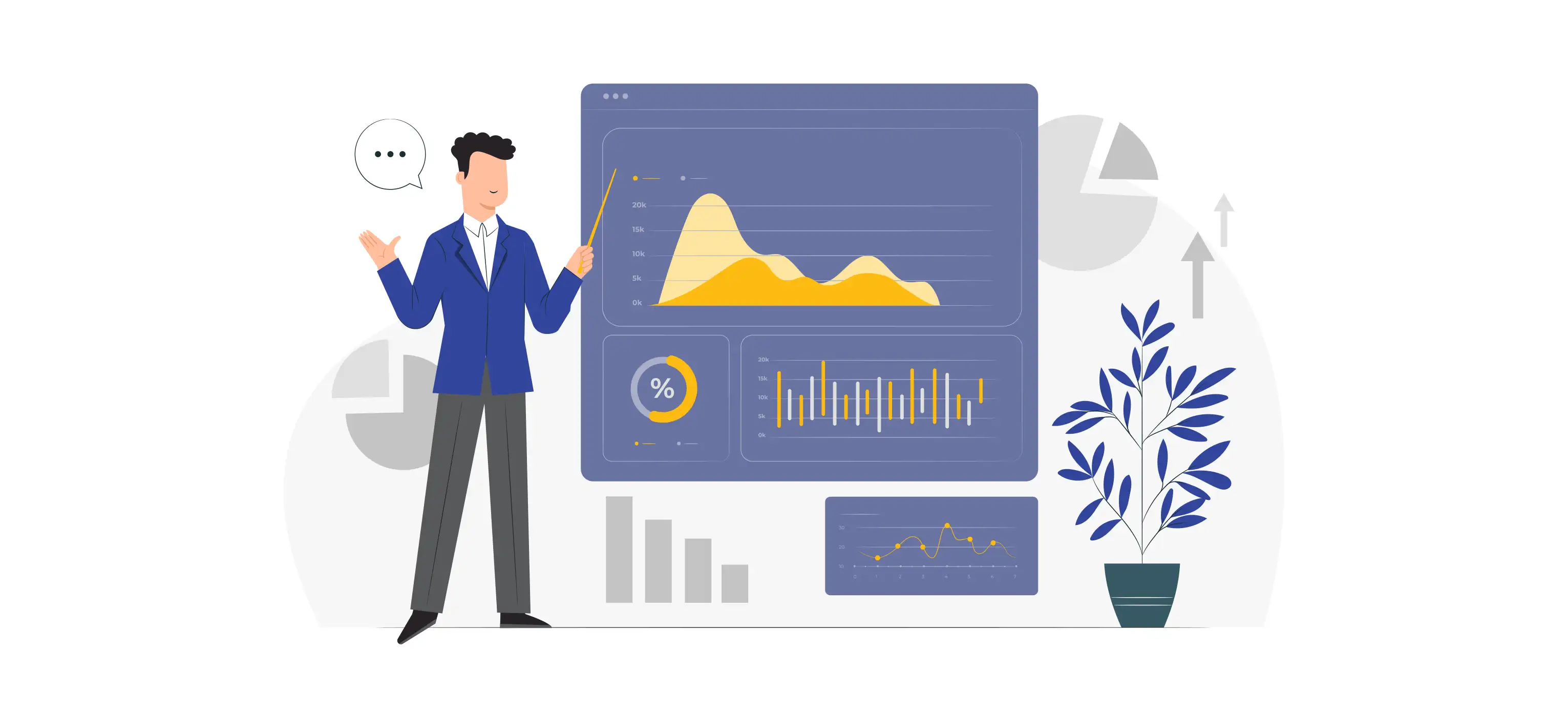 Piyush P
Jan 07, 2025
Piyush P
Jan 07, 2025

In 2025, data analysis holds paramount importance across various industries, aiding organizations in making well-informed decisions. The roadmap presented here serves as a valuable guide for aspiring data analysts, offering a structured pathway to navigate the field effectively. By delineating essential steps and skills, this roadmap empowers individuals to comprehend the intricacies of data analysis and chart their career progression.
Data analysts are the detectives of the information age. They gather raw data, clean it up, analyze it using statistical methods, and transform it into clear, actionable insights. These insights empower businesses to make better decisions, optimize operations, and gain a competitive edge. Data analysts are in high demand across various industries, from finance and marketing to healthcare and social media.
This blog will explore the intricacies and importance of the data analytics roadmap in guiding aspiring professionals toward success.
Check out: What is Data Analytics? Definition with Examples
To become a proficient data analyst, you need the right toolkit. This includes skills in statistics, programming, data visualization, and communication.
Learn more: Top Data Analytics Skills
Understanding the educational background and prerequisites is essential for those considering a career in data analysis. Here's what aspiring data analysts need to know:
Acquiring the necessary educational background and prerequisites lays the foundation for a successful career in data analysis. With the right qualifications and skills, aspiring data analysts can confidently pursue opportunities in this dynamic field.
In the field of data analysis, expertise with numerous tools and technologies is essential. These technologies make data handling, analysis, and visualization more efficient. Python, R, and SQL are popular computer languages for data manipulation and analysis. Furthermore, experience in data visualization technologies like as Tableau or Power BI helps to successfully deliver findings.
Understanding databases and data warehousing ideas is also important, as is knowledge of cloud computing services like AWS or Google Cloud Platform, which allow for scalable and efficient data storage and processing.
Read on: Best Data Analytics Tools
Crafting a robust portfolio is vital for aspiring data analysts to showcase their skills and expertise to potential employers. A strong portfolio typically includes real-world projects, demonstrating practical application of data analysis techniques. These projects could range from data cleaning and manipulation tasks to more complex analysis and visualization endeavors.
Additionally, including detailed descriptions of the projects, along with the methodologies used and the insights gained, helps recruiters understand the candidate's capabilities better. Platforms like GitHub or Kaggle provide excellent avenues for sharing portfolios and engaging with the data science community.
For aspiring data analysts, securing internships and navigating the job search process requires strategic planning. Seeking internships offers valuable hands-on experience and networking opportunities. Candidates should tailor their resumes and cover letters to highlight relevant skills and experiences.
Utilizing online job boards and professional networking platforms like LinkedIn and attending industry events can enhance job search efforts. Additionally, informational interviews with professionals in the field provide insights and connections. It's essential to remain persistent and adaptable throughout the process to maximize chances of success.
Career growth in data analysis offers various pathways for professionals to advance and excel in their roles. Here are some key opportunities:
These diverse opportunities enable data analysts to chart their career paths, whether it's pursuing specialized knowledge, climbing the corporate ladder, or diving into entrepreneurship.
In conclusion, this data analyst roadmap offers aspiring professionals a comprehensive guide to navigating the dynamic field of data analysis. Individuals may start a meaningful career by learning critical skills, developing a solid portfolio, and carefully pursuing chances. With commitment and continual learning, data analysts can thrive in this ever-changing market, providing useful insights to organizations across sectors.

Microsoft Azure Certified Data Science Trainer
Piyush P is a Microsoft-Certified Data Scientist and Technical Trainer with 12 years of development and training experience. He is now part of Edoxi Training Institute's expert training team and imparts technical training on Microsoft Azure Data Science. While being a certified trainer of Microsoft Azure, he seeks to increase his data science and analytics efficiency.